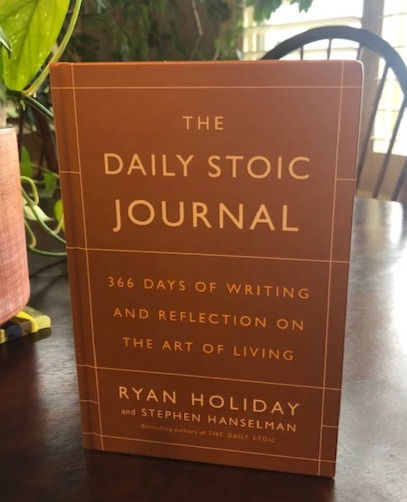Longevity and Mitochondria Health...
- Lisa Schaffer
- Mar 2, 2021
- 7 min read
Welcome to GreenNote Fitness Reflections.
Each month I share with you what I’m doing for longevity - to live my life fully with joy while serving others. We will deep-dive into optimizing brain function and mitochondrial health while maintaining strength and balance of body, mind, and spirit.
I’m working on a project. One that takes time and focus and will benefit me today and 20 to 30 years from now. Sounds pretty important. It is. You see, I’m working on a plan for longevity and health span (the quality of one’s life/health). I’ve written about this here
There are many, many things or “ingredients”, if you will, that go into increasing one’s health span. I’m going to focus on four of them, starting with mitochondria health. Before jumping in to the tactics of what I”m doing to help my mitochondria function at its best, let’s take a look at what the heck mitochondria is and why it’s utterly important.
If there is one thing that researchers and health experts agree on, it’s the importance of mitochondria health. Yes see, it’s kind of everything.
My Hope and Ask of You
After reading this newsletter, you should have a better understanding of the overall importance of your mitochondria and your health. My ask is that you take heed of your own health. Understand your body. Learn what works for you. Change those things in your life that are depriving you of a full, vibrant life. Work relentlessly to improve and maintain a sound body, mind, and spirit. This is the responsibility of each and every human. Please take this mission seriously.
What is Mitochondria
This is a great place to start. What the heck is it? Lee Know, ND, and author of Mitochondria and the Future of Medicine, explains it as:
Mitochondria are the powerhouses, or energy factories, of the cell. They are organelles that act like a cellular digestive system that takes in nutrients, breaks them down and creates energy for the cell. The process of creating cell energy is known as cellular respiration, and most of the chemical reactions involved in cellular respiration happen in the mitochondria.
Ok, so there is a process going on in our cells that gives us energy (if all is functioning properly, more on this later).
In my Mind, Body, Spirit Kion Coach Course taught by Ben Greenfield, I learned this about mitochondria that uses some practical language:
Mitochondria are the powerhouse of the cell and therefore the human body. They’re responsible for the production of adenosine triphosphate (ATP), the energy that your body uses to fuel everything you do. Mitochondria are the foundation of a strong body and mind because they dictate how energetic you feel and how well you operate, so we want to take every step we can to optimize their function.
The Importance of Mitochondria - Driving it Home
Still not convinced the importance of your mitochondria? Greenfield further explains its significance. Mitochondria reside within each and every one of your cells and make up one-third of your total body weight. By converting glucose and oxygen, they produce ATP to create all of the energy you body needs to run every aspect of each of its cellular functions.
It is because of mitochondria that your brain fires on all cylinders; your hormones stay in check; your heart keeps beating; your lungs constantly bring in, absorb, and expel vital air; your immune system protects you from viruses, bacteria, and molds; your gut is able to absorb nutrients, etc. Basically, any bodily function that relies on energy happens because of mitochondria. It’s no wonder they have been increasingly recognized as essential players in the aging process.
Key point - if you want a strong body and mind and have great energy, then we need to optimize the function of mitochondria.
Can Mitochondria Become Damaged
You bet your sweet powerhouses they can. As you get older, your body loses some of its cellular power as well as control over its cellular clearing and recycling abilities. This results in an accumulation of old, dysfunctional cells known as senescent cells and poorly functioning mitochondria.
Greenfield explains most aging-related diseases, particularly neurodegenerative diseases, have mitochondrial involvement and mitochondrial dysfunction is one of the hallmarks of metabolic decline resulting from aging.
When mitochondria are stressed by inflammation or free radicals, they can kill the cell they live in via apoptosis - programmed cell death. Mitochondrial damage is a problem seen in many conditions related to aging including cardiovascular disease, liver disease, Alzheimer’s, and osteoporosis. Mitochondria can become severely damaged and wreck havoc on the body and brain. Speaking of the brain...
Your Brain and Mitochondria
The brain at rest uses 20 percent of the body’s energy. The prefrontal cortex (the ‘higher’ part of your brain in charge of advanced cognitive function) contains the most mitochondria (followed by the retina and heart). Decision fatigue anyone? Do you think then that mitochondria function would be important for our brain? Dave Asprey thinks so. He has written an entire book on it, Head Strong - The Bulletproof Plan to Activate Untapped Brain Energy to Work Smarter and Think Faster in Just Two Weeks.
In his book, Asprey has identified five brain weaknesses: forgetfulness; cravings; inability to focus; low energy; and moodiness/anger. The one thing they have in common? They are all tied to mitochondrial function. He goes on to say that the efficiency and strength of your mitochondria dictates whether or not not you’ll eventually develop cancer or a degenerative disease, as well as how much brain power you have right now.
Your Whole Body, Disease, and the Mighty Mitochondria
Lee Know, author of Mitochondria and the Future of Medicine - the Key to Understanding Disease, Chronic Illness, Aging, and Life Itself, has outlined health conditions such as:
Cardiovascular disease (as mentioned above)
Stroke
Neurodegeneration: Alzheimer’s; Parkinson’s; Huntington’s
Depression
ADHD
Chronic Fatigue Syndrome, Myalgic Encephalomyelitis, and Fibromyalgia
Type II Diabetes
Cancer
Age-related hearing loss
Aging skin and wrinkles
Eye-related diseases
Now, what can we do about to mind our mitochondria?
Tips and Tactics for Mitochondrial Health
There are many things we can do on a daily basis to maintain and improve our mitochondrial health. Let’s take a look at a few that I am currently implementing.
Fasting
It’s been said many times, many ways…If you want to improve your overall health, to live and life with vitality, and improve your mitochondrial health, then this has to be in your tool-kit and it can never leave it. Improving the clearing and recycling of senescent cells is one of the top ways you can care for your mitochondria.
Resources:
Exercise
Good golly, this should not be a surprise to anyone…No doubt we need exercise for a host of reasons, from improving circulation and the immune system, mental health to cardiovascular fitness and increasing mitochondrial density.
Here is a type of exercise that I’ve been deploying once to twice per week that will help with mitochondrial density:
30 seconds hard effort
Four minute recovery
Repeat four to six times
Perform once per week
It would look something like this. After sufficient warm-up, use a rowing machine, row hard for 30 seconds. Do a four minute recovery. I either keep rowing with much less intensity or get up and do push-ups, body weight squats, lateral lunges, or a combination of two or more for the four minute recovery period. Repeat this four to six times. Complete this once or twice per week. Could use a bicycle, stair stepper, sprint, or other method.
Nutrition and Supplements
You didn’t think we could have a discussion on health without talking about what we are fueling our bodies with did you? Here are some foods that are recommended by Dr. David Jockers. He tells us to eat plenty of greens, vegetables, herbs, fruits rich in antioxidants, vitamins, and minerals. Consume healthy fats, such as avocados, olive oil, grass-fed butter and ghee. Focus on clean proteins, such as grass-fed beef, wild-caught salmon, and poultry and wild game.
Organ meats, including liver, heart, tongue, kidney, brain, intestines, bones and tendons can be particularly beneficial when it comes to mitochondrial health. For example, the heart is rich in CoQ10 enzymes which are incredibly beneficial to your mitochondria by reducing oxidative stress and improving energy production.
Not a fan of organ meats? Yes, I hear you. That’s why I take it in supplemental form. The health-conscious company is PaleValley. Their organ meets supplement is Grass Fed Organ Complex.
Organ meats, such as liver and kidneys are rich in vitamin B12 that is necessary for healthy nerve function, memory, mood, and energy. Liver and cod liver is high in vitamin D which is essential for your immune system. Organ meats are high in omega-3 fatty acids that can fight inflammation effectively. They are also rich in healthy protein, iron, B vitamins, and other water-soluble vitamins, such as A, D, E, and K.
Not surprisingly, a diet high in refined sugars, processed foods, and other inflammatory foods can lead to inflammation, oxidative stress, mitochondrial problems, and disease.
There are a host of nutrients and supplements that one can take to support healthy mitochondria. Here are a couple of resources:
Quality Sleep and Stress Reduction
I guard my sleep like a mama bear protecting her cubs. Its importance is severely underrated and not discussed enough. On a daily basis I track the quality of my sleep and how well I’ve recovered using my Oura Ring which I’ve written about here.
According to research, less than seven hours of sleep per night can result in the reduction of mitochondrial DNA in the blood as well as poor cellular function. Even short-term sleep deprivation can result in mitochondrial dysfunction and oxidative stress.
Dr. Jocker’s offers us these tips. To improve your mitochondrial function, make sure to sleep 7 to 8 hours per night regularly. Developing a regular sleep/wake schedule and a relaxing night-time routine can help you fall asleep quickly and to obtain quality sleep throughout the night.
We know that chronic stress is bad for us as it can increase inflammation, reduce immune function and increase fatigue. This is crucial to understand as all of this can increase your risk of mitochondrial problems and related symptoms.
We all have stress so it would be prudent to incorporate a daily practice of things that can help us manage it better. What can help? Meditation, breathing exercises, yoga, walking, journaling, praying, expressing gratitude can help. Remember, this is a daily practice.
And…there you have it…mitochondria health in a nutshell and my first pillar of longevity and healthspan. Yes, lots of information. I’m hopeful that this has provided you a window into what’s going on in your body and how utterly important it is that we respect and honor its complexity.
I touched upon a few things that you can begin implementing today. Many of those tips should look familiar to you and signal that foundation pieces to our existence cannot be ignored or it’s possible that we will pay dearly.
So start today. What does your longevity plan look like?
To our reflection,
Lisa Schaffer
Do you have a friend that would benefit from this information?
***Please forward it to them!***
See my last newsletter My 5-day fasting challenge results…?






















































Comments